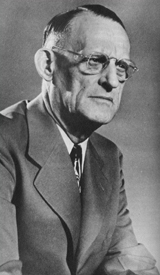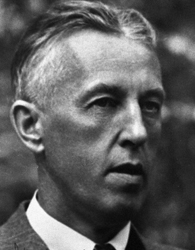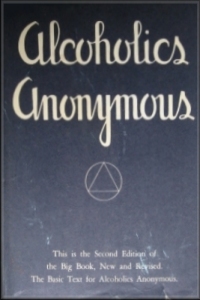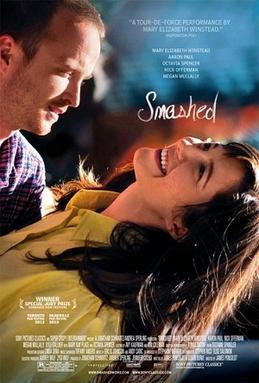Related Research Articles

Alcoholics Anonymous (AA) is a global, peer-led mutual-aid fellowship dedicated to abstinence-based recovery from alcoholism through its spiritually inclined twelve-step program. AA’s Twelve Traditions, besides stressing anonymity and the lack of a governing hierarchy, establish AA as free to all, non-professional, unaffiliated, and non-denominational, as well as apolitical. In 2021 AA reported a presence in approximately 180 countries with nearly two million members—73% in the United States and Canada.
Twelve-step programs are international mutual aid programs supporting recovery from substance addictions, behavioral addictions and compulsions. Developed in the 1930s, the first twelve-step program, Alcoholics Anonymous (AA), founded by Bill Wilson and Bob Smith, aided its membership to overcome alcoholism. Since that time dozens of other organizations have been derived from AA's approach to address problems as varied as drug addiction, compulsive gambling, sex, and overeating. All twelve-step programs utilize a version of AA's suggested twelve steps first published in the 1939 book Alcoholics Anonymous: The Story of How More Than One Hundred Men Have Recovered from Alcoholism.

Robert Holbrook Smith, also known as Dr. Bob, was an American physician and surgeon who cofounded Alcoholics Anonymous with Bill Wilson.

William Griffith Wilson, also known as Bill Wilson or Bill W., was the co-founder of Alcoholics Anonymous (AA) with Bob Smith.

Sexaholics Anonymous (SA), founded in 1979, is one of several twelve-step programs for compulsive sexual behavior, based on the original twelve steps of Alcoholics Anonymous. SA is part of a group of twelve-step organization addressing sexual addiction: Sex Addicts Anonymous(SAA), Sex and Love Addicts Anonymous(SLAA), Sexual Compulsives Anonymous(SCA) and Sexual Recovery Anonymous(SRA). Collectively, these groups are known as "S" groups due to their acronyms Starting with "S": SA, SAA, SLAA, SCA, and SRA.
Cocaine Anonymous (CA) is a twelve-step program formed in 1982 for people who seek recovery from drug addiction. It is patterned very closely after Alcoholics Anonymous (AA), although the two groups are unaffiliated. While many CA members have been addicted to cocaine, crack, speed or similar substances, CA accepts all who desire freedom from "cocaine and all other mind-altering substances" as members.

Clean and Sober is a 1988 American drama film directed by Glenn Gordon Caron and starring Michael Keaton as a real estate agent struggling with a substance abuse problem. This film was Keaton's first dramatic departure from comedies. The supporting cast includes Kathy Baker, M. Emmet Walsh, Morgan Freeman, Luca Bercovici and Tate Donovan.
Pagans in recovery is a phrase, which is frequently used within the recovery community, to describe the collective efforts of Neopagans as well as Indigenous, Hindu, Buddhist, and other like-minded groups, to achieve abstinence or the remission of compulsive/addictive behaviors through twelve-step programs and other programs, such as Alcoholics Anonymous, Narcotics Anonymous, Overeaters Anonymous, Al-Anon/Alateen, etc. These efforts generally focus on modifying or adapting the twelve steps to accommodate the Pagan world-view as well as creating Pagan-friendly twelve step meetings either as part of a preexisting twelve-step program or as independent entities.
Thomas "Buddy"/"Bud" McDonald was an American child actor. He is perhaps best known as one of the Our Gang kids of the early sound period, and McDonald is prominently featured in the Our Gang shorts Teacher's Pet and School's Out. He appeared in several of the Our Gang comedies, and also appeared in a scene with Laurel & Hardy in Pardon Us.
Transitional living refers to any type of living situation that is transitional. The primary purpose or mission of transitional living environments is temporary. Transitional living facilities often offer low-cost housing. Transitional living residents that cater to those recovering from economic hardship often graduate from a shelter to a lesser crowded living situation. Transitional living may or may not have other common threads among residents. Transitional living provides professional support, education, and a stable living environment. Common types of transitional living include transitioning from jail or prison, an addiction treatment center or a mental health facility. They may also target homelessness, especially among youth. Transitional living is provided by many well known private and non-profit organizations, by government, churches and other charitable organizations.
Edwin Throckmorton Thacher was an old drinking friend and later the sponsor of Alcoholics Anonymous co-founder Bill Wilson. He is credited with introducing Wilson to the initial principles that AA would soon develop, such as "one alcoholic talking to another," and the Jungian thesis which was passed along to Rowland Hazard and, in turn, to Thacher that alcoholics could recover by a "genuine conversion".

Neurotics Anonymous (N/A), founded in 1964, is a twelve-step program for recovery from mental and emotional illness. To avoid confusion with Narcotics Anonymous (NA), Neurotics Anonymous is abbreviated N/A or NAIL.
Crystal Meth Anonymous (CMA) is a California-based non-profit, public-benefit corporation founded in 1994. The members of the fellowship of Crystal Meth Anonymous work a twelve-step program of recovery with recovering crystal meth addicts. Participants in local groups meet in order to help others recover from methamphetamine addiction. CMA advocates complete abstinence from methamphetamine, alcohol, inhalants, and all other psychoactive drugs not taken as prescribed.
Sober living houses (SLHs), also called sober homes and sober living environments, are facilities that provide safe housing and supportive, structured living conditions for people exiting drug rehabilitation programs. SLHs serve as a transitional environment between such programs and mainstream society. Many SLHs also accept people who are in recovery from substance use disorders but have not recently completed a rehabilitation program.

Alcoholics Anonymous (AA) is a global fellowship founded in 1935 by Bill Wilson and Robert Smith, and has since grown to be worldwide.

Secular Organizations for Sobriety (SOS), also known as Save Our Selves, is a non-profit network of autonomous addiction recovery groups. The program stresses the need to place the highest priority on sobriety and uses mutual support to assist members in achieving this goal. The Suggested Guidelines for Sobriety emphasize rational decision-making and are not religious or spiritual in nature. SOS represents an alternative to the spiritually based addiction recovery programs such as Alcoholics Anonymous (AA). SOS members may also attend AA meetings, but SOS does not view spirituality or surrendering to a Higher Power as being necessary to maintain abstinence.

Alcoholics Anonymous: The Story of How More Than One Hundred Men Have Recovered from Alcoholism is a 1939 basic text, describing how to seek recovery from alcoholism. The Big Book was written by William G. "Bill W." Wilson, one of the founders of Alcoholics Anonymous, with the help of various editors. The composition process was not collaborative other than editing. Bill wrote all of the chapters except for "To Employers" which was written by Bill's right-hand man, Hank Parkhurst. Parkhurst influenced the more liberal notions of "God as we understand him" and "your own conception of God." Drafts of sections were sent back and forth between Bill W.'s group in New York and Robert Holbrook Smith, the other AA founder, in Akron, Ohio. Dr. Bob made no major changes. It is the predecessor of the seminal "twelve-step method" widely used to treat many addictions, from alcoholism, heroin addiction and marijuana addiction to overeating, sex addiction and gambling addiction, with a strong spiritual and social emphasis. It is one of the best-selling books of all time, having sold 30 million copies. In 2011, Time magazine placed the book on its list of the 100 best and most influential books written in English since 1923, the year in which the magazine was first published. In 2012, the Library of Congress designated it as one of 88 "Books that Shaped America."

Smashed is a 2012 American drama film directed by James Ponsoldt, written by Ponsoldt and Susan Burke, and starring Mary Elizabeth Winstead and Aaron Paul. Winstead and Paul play a married couple, Kate and Charlie Hannah, both alcoholics. After a series of embarrassing incidents caused by her drinking habit, Kate decides to get sober with the help of a coworker and a sponsor from Alcoholics Anonymous.

A sobriety coin is a token given to Alcoholics Anonymous or other twelve-step program members representing the amount of time the member has remained sober. It is traditionally a medallion the size of a poker chip, 34 mm (1.34 in) (standard) or 39 mm (1.5 in) in diameter. In other twelve-step programs it is to mark time abstaining from whatever the recipient has committed to renounce. There is no official AA medallion or chip; they are used in AA culture but not officially conference-approved, and the AA logo has not been granted for use on medallions.
The Skid Row Running Club is a running club based in the Skid Row neighborhood of Los Angeles, California. Since its founding, the club has had more than five hundred participants.
References
- 1 2 3 4 Smith, Doug (2020-08-28). "Clancy Imislund, longtime director of L.A.'s Midnight Mission, dies at 93". Los Angeles Times. Retrieved 2024-09-01.
- ↑ I, Clancy. "One of the Funniest Talks Ever!". music.apple.com. Alcoholics Anonymous . Retrieved 9 October 2024.
- ↑ "Midnight Mission centennial: How this man went from homeless to managing a shelter". LAist. Retrieved 2024-09-01.
- 1 2 "Stories of Recovery - The Clancy Imislund Collection". storiesofrecovery.org. Retrieved 2024-09-01.
- ↑ "Clancy Imislund-Remembered". More will be revealed. 2020-10-01. Retrieved 2024-09-01.
- ↑ Martin, Brittany (2020-08-25). "Clancy Imislund, a Towering Figure of L.A.'s Recovery Movement, Has Died at 93". LAmag - Culture, Food, Fashion, News & Los Angeles. Retrieved 2024-09-01.